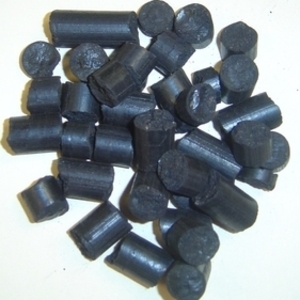Vencor International to test hemp as bioenergy feedstock




April 14, 2015
BY Vencor International Inc.
Vencor International Inc. recently announced it has entered into an agreement to begin testing industrial hemp as a feedstock used to manufacture various torrefied products, including bio-coal, a renewable energy product.
The agreement with Georgia-based Vega Biofuels Inc. calls for Vencor to immediately begin testing industrial hemp as a raw feedstock for producing Vega's bio-coal product.
Advertisement
Advertisement
Vencor recently provided Vega with samples of its torrefied wood pellets made from timber waste for testing by Vega's client. Multiple tests were performed, including ash, sulfur and volatile content analysis as well as fixed carbon and BTU content. Each one of the tests performed exceeded the requirements necessary for approval by Vega. Vencor will provide similar samples to Vega using industrial hemp as a feedstock.
James Gaspard, CEO of Vencor International, stated, "We look forward to testing hemp as a feedstock for Vega's Bio-Coal product. One benefit that hemp has over other feedstock is that hemp can be harvested annually, whereas other feedstock products take years to grow. We anticipate that testing will exceed the necessary requirements and look forward to expanding our use of industrial hemp pursuant to current legislation. As laws change from state to state, we anticipate legislation allowing for the increase in the use of industrial hemp. By performing this testing now, we will be ready when this change takes place."
Advertisement
Advertisement
Vencor is in the business of manufacturing torrefied wood products, also known as bio-coal that can replace traditional coal in coal-fired power plants around the world. Bio-coal is a renewable energy product produced from timber waste using technology called torrefaction. The physical and energetic properties of the biomass are then much more comparable to conventional coal. The torrefaction process has the added benefit of reducing or eliminating undesirable volatiles, such as nitrous oxides and sulfur dioxides in the bio-coal. Bio-coal is considered carbon neutral to the environment. The key property that makes bio-coal attractive for cofiring in existing coal-fired power stations is its superior grind ability compared to untreated or fresh biomass. Bio-coal has a high energy density and is considered a renewable energy fuel that meets the renewable portfolio standards and renewable energy credits (RECs) in the United States.
Upcoming Events





